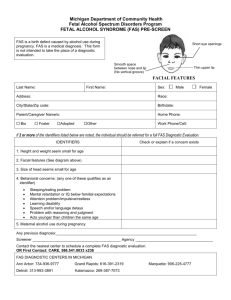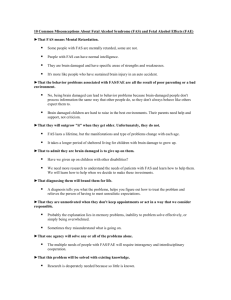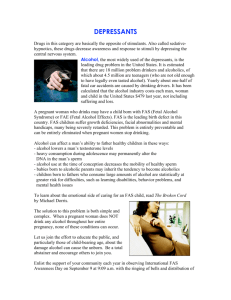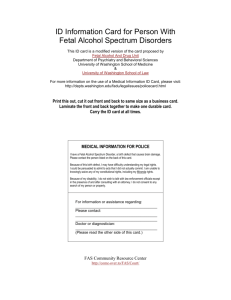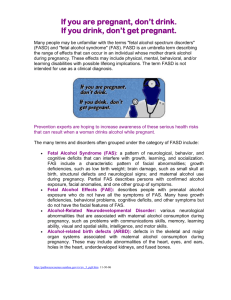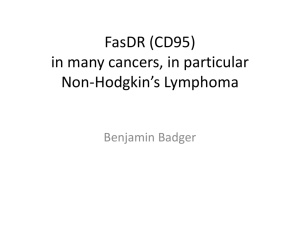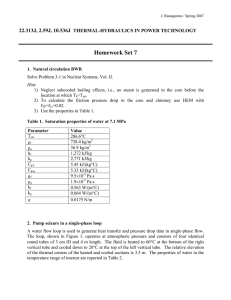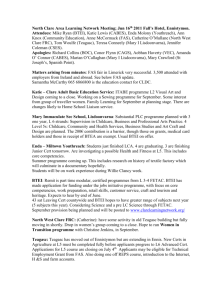EVALUATION OF THE –1377 POLYMORPHISM ON THE APO
advertisement
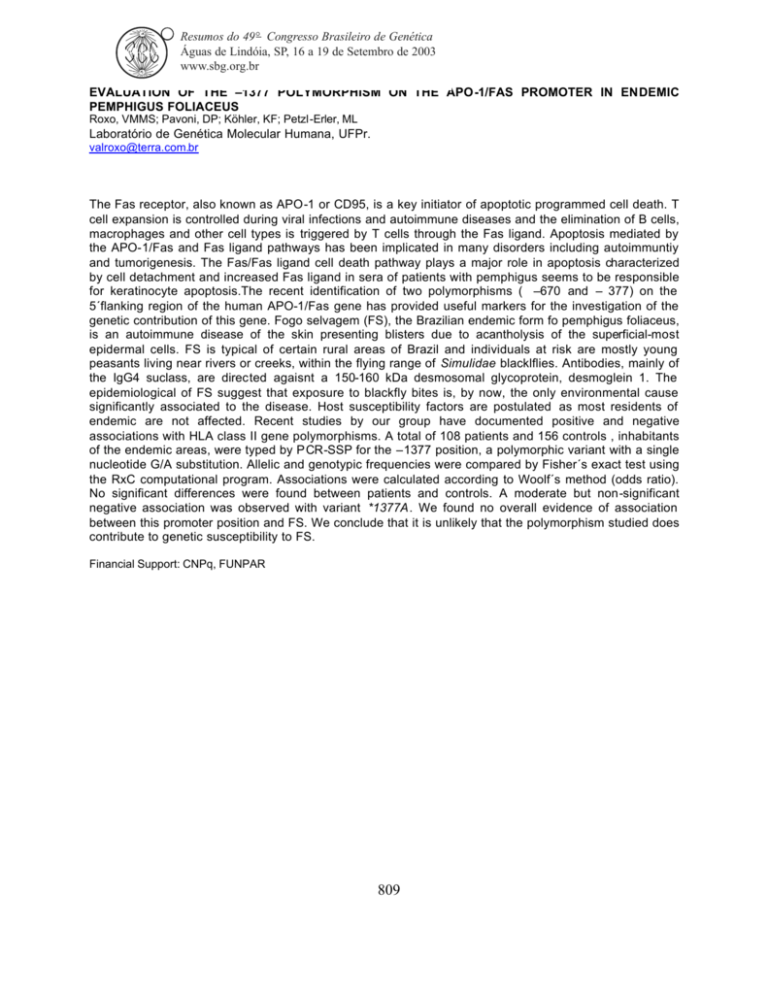
Resumos do 49° Congresso Brasileiro de Genética Águas de Lindóia, SP, 16 a 19 de Setembro de 2003 www.sbg.org.br EVALUATION OF THE –1377 POLYMORPHISM ON THE APO-1/FAS PROMOTER IN ENDEMIC PEMPHIGUS FOLIACEUS Roxo, VMMS; Pavoni, DP; Köhler, KF; Petzl-Erler, ML Laboratório de Genética Molecular Humana, UFPr. valroxo@terra.com.br The Fas receptor, also known as APO-1 or CD95, is a key initiator of apoptotic programmed cell death. T cell expansion is controlled during viral infections and autoimmune diseases and the elimination of B cells, macrophages and other cell types is triggered by T cells through the Fas ligand. Apoptosis mediated by the APO-1/Fas and Fas ligand pathways has been implicated in many disorders including autoimmuntiy and tumorigenesis. The Fas/Fas ligand cell death pathway plays a major role in apoptosis characterized by cell detachment and increased Fas ligand in sera of patients with pemphigus seems to be responsible for keratinocyte apoptosis.The recent identification of two polymorphisms ( –670 and – 377) on the 5´flanking region of the human APO-1/Fas gene has provided useful markers for the investigation of the genetic contribution of this gene. Fogo selvagem (FS), the Brazilian endemic form fo pemphigus foliaceus, is an autoimmune disease of the skin presenting blisters due to acantholysis of the superficial-most epidermal cells. FS is typical of certain rural areas of Brazil and individuals at risk are mostly young peasants living near rivers or creeks, within the flying range of Simulidae blacklflies. Antibodies, mainly of the IgG4 suclass, are directed agaisnt a 150-160 kDa desmosomal glycoprotein, desmoglein 1. The epidemiological of FS suggest that exposure to blackfly bites is, by now, the only environmental cause significantly associated to the disease. Host susceptibility factors are postulated as most residents of endemic are not affected. Recent studies by our group have documented positive and negative associations with HLA class II gene polymorphisms. A total of 108 patients and 156 controls , inhabitants of the endemic areas, were typed by PCR-SSP for the –1377 position, a polymorphic variant with a single nucleotide G/A substitution. Allelic and genotypic frequencies were compared by Fisher´s exact test using the RxC computational program. Associations were calculated according to Woolf´s method (odds ratio). No significant differences were found between patients and controls. A moderate but non-significant negative association was observed with variant *1377A. We found no overall evidence of association between this promoter position and FS. We conclude that it is unlikely that the polymorphism studied does contribute to genetic susceptibility to FS. Financial Support: CNPq, FUNPAR 809
